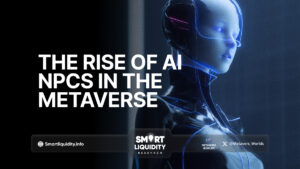Exploring Future Trends and Predictions in the Metaverse


In recent years, the concept of the metaverse has transitioned from science fiction to a tangible reality, poised to revolutionize how we interact with digital environments.
The metaverse represents the next evolutionary step beyond current virtual worlds like video games and virtual reality (VR) environments. It promises seamless integration of virtual experiences with real-world interactions, blurring the lines between physical and digital realms.
2. Economic Opportunities:
One of the most exciting prospects of the metaverse is its economic potential. Already, virtual real estate markets are emerging where digital land and properties are bought and sold. Businesses are exploring opportunities to establish virtual storefronts and offer virtual goods and services.
3. Social Dynamics and Cultural Shifts:
The metaverse is likely to reshape social dynamics by providing new ways for people to connect and collaborate regardless of physical distance. Virtual meetings, conferences, and social gatherings could become commonplace, transcending the limitations of traditional communication tools.
4. Technological Challenges and Innovations:
As with any emerging technology, the metaverse presents several challenges. These include ensuring security and privacy in virtual environments, addressing issues of digital equity and accessibility, and developing interoperability standards across different platforms. Innovations in artificial intelligence, blockchain technology, and augmented reality will likely play crucial roles in overcoming these challenges and expanding the capabilities of the metaverse.
5. Predictions for the Future:
Looking ahead, experts predict a rapid evolution of the metaverse over the next decade. We may see widespread adoption across industries ranging from entertainment and education to healthcare and finance. Virtual reality headsets and augmented reality devices could become as ubiquitous as smartphones, enabling seamless transitions between physical and virtual realities.
In conclusion, the metaverse represents a paradigm shift in how we perceive and interact with digital environments. While it presents exciting opportunities for innovation and economic growth, it also raises important questions about ethics, regulation, and the future of human experience in a digital age. As we continue to explore and develop the metaverse, careful consideration of these factors will be crucial in shaping a future that is inclusive, sustainable, and beneficial for all.




